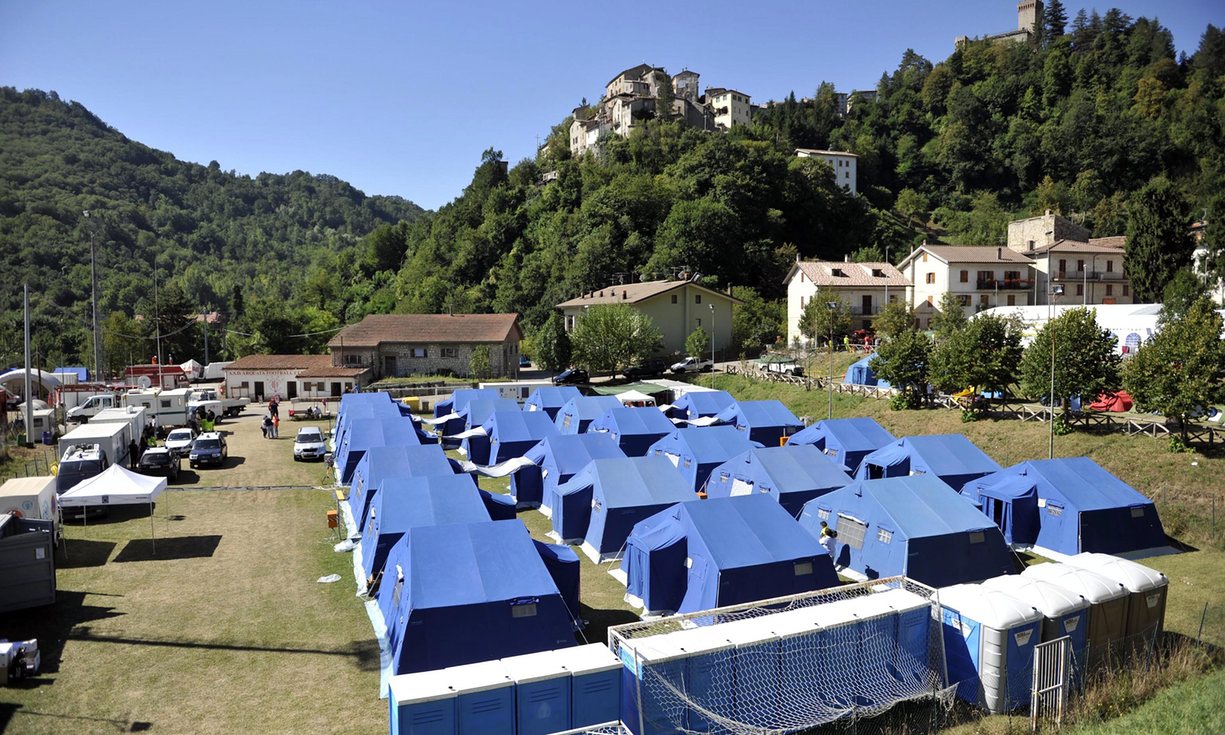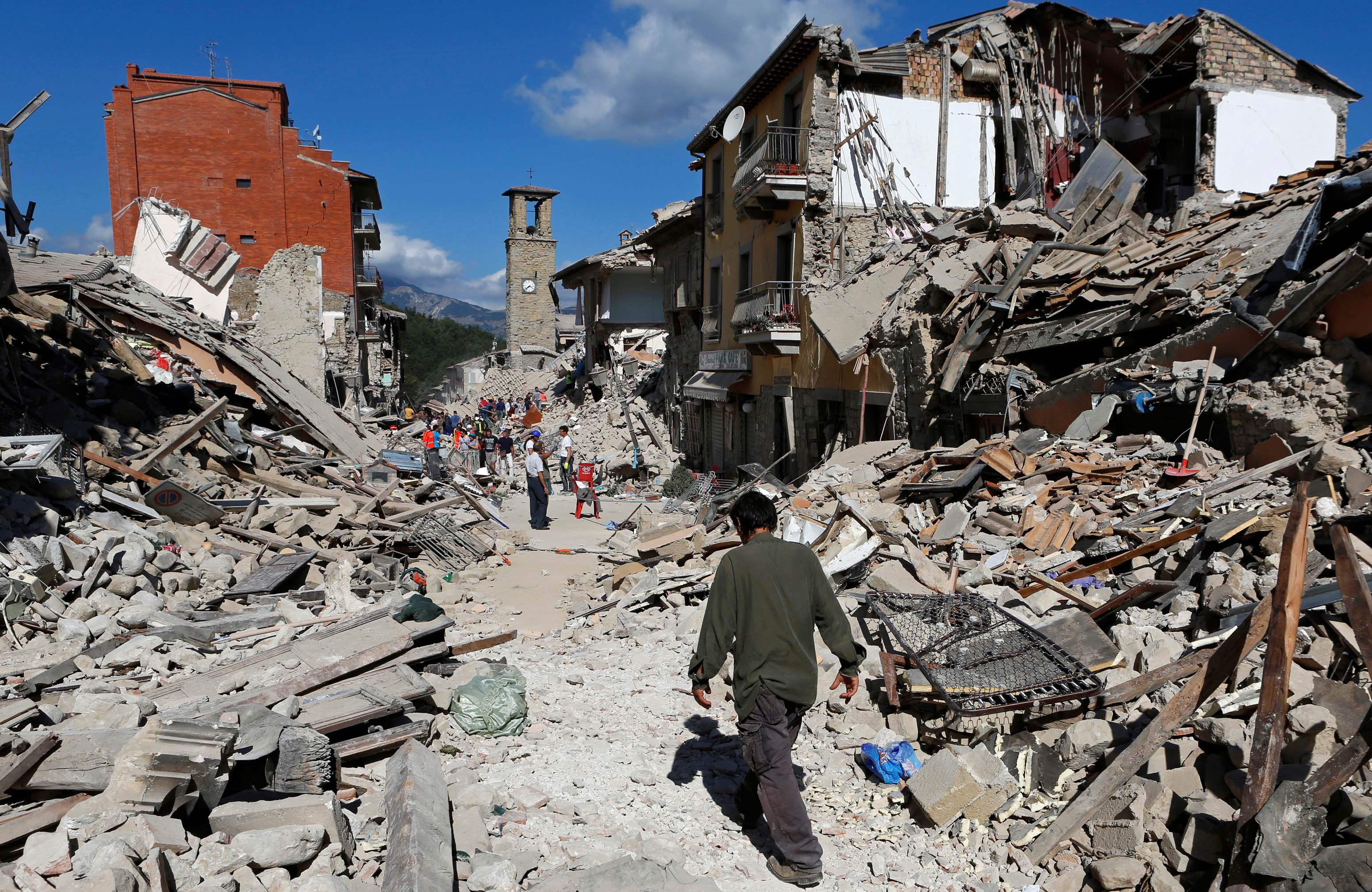By David Jacobson, Temblor
Check your hazard rank in Temblor

When large earthquakes strike, media outlets flock to the scene to cover devastation. After a few days though, new stories take precedent and earthquakes become “old news.” However, impacts from earthquakes can last years to decades. Even though shaking eventually stops, cleanup and rebuilding are long processes, and psychological effects can last a lifetime. In a story published late last week by the BBC, Patrick Johnson shed light on the hardships earthquake survivors in Italy are facing and will continue to face in the coming months.
While it has only been a little more than a month since the 24 August M=6.2 earthquake which claimed 298 lives, there are still over 2,000 people living in makeshift camps. While this may sound like a lot, it pales in comparison to the 58,000 that were left homeless in the 2009 L’Aquilla, Italy earthquake, or the nearly 290,000 that were still homeless two years after the 2011 Tohoku, Japan earthquake.

In the small towns in Italy left devastated by the August earthquake, blue tents now cover soccer fields, larger canteens house dining quarters, and shipping containers are stores. The hope is that some people will be moved into hotels by the start of October. However, this will not be the case for everyone, and with nights getting colder, times will only get tougher.
What this tragedy and recent article brings to light is the longer-lasting impact of earthquakes, and how long it can take to “recover.” We often see the immediate impact, but rarely do we get a glimpse of how areas or people are doing months or even years after an event. While each earthquake is unique, recovery is a long process, even in smaller earthquakes. Here in California, it has been more than two years since the M=6.0 Napa earthquake, yet in downtown Napa, the courthouse remains closed, and there are still abandoned buildings. Additionally, in my former home of Christchurch, New Zealand, it has been more than 5.5 years since the devastating February 2011 earthquake, and yet the iconic Christchurch Cathedral still stands in ruin.

Even though these facts are important, they are only bricks and mortar, which can be repaired. Numerous studies have also outlined psychological effects. Most of these show that levels of distress return to normal levels one year after large earthquakes. However, post traumatic stress can last much longer, and occurrence rates as high as 92% following large earthquakes have been documented. So, while we may not be receiving updates following an earthquake, or if things on surface appear to have mended themselves, it is important to realize that true recovery following large earthquakes is always ongoing.
Sources:
BBC Article
CNN Article
Japan Today Article
ABC 7 News Article on recovery from Napa Earthquake
The Guardian
US Department of Veterans Affairs
Related Blogs
Italy earthquake: NASA radar maps reveal massive damage
Italy earthquake leaves seismic gaps that were last filled by three large earthquakes in 1703
M=6.2 earthquake strikes central Italy, 35 km north of the disastrous 2009 M=6.3 L’Aquila event
Check your hazard rank in Temblor
- Deep earthquake beneath Taiwan reveals the hidden power of the Ryukyu Subduction Zone - January 7, 2026
- Magnitude 7 Yukon-Alaska earthquake strikes on the recently discovered Connector Fault - December 8, 2025
- Upgrading Tsunami Warning Systems for Faster and More Accurate Alerts - September 26, 2025
